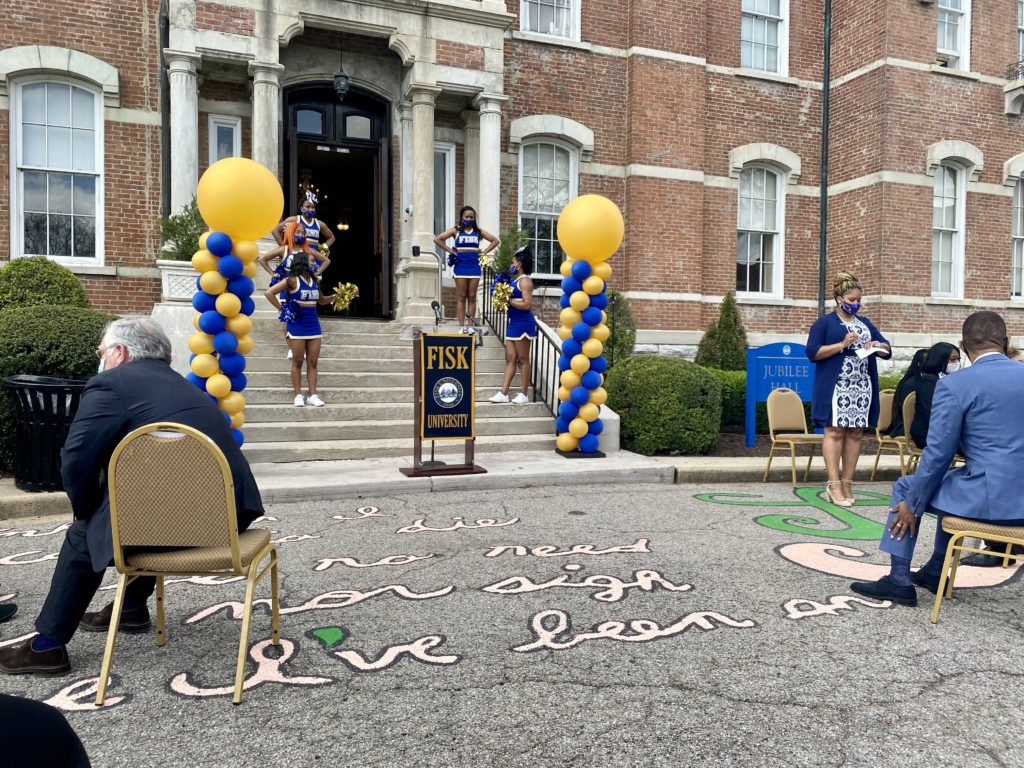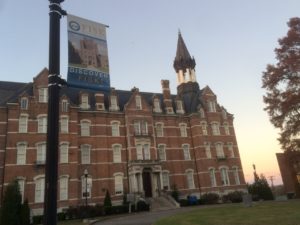
Fisk University in North Nashville is showing no signs of slowing its growth. The historically Black college is preparing to enter the fall semester with more students and a stronger academic class than in previous years.
Executive Vice President Jens Frederiksen says, although applications are down, a more competitive admissions process means students who applied to the college are more likely to enroll after being accepted. This means, the university is on track for a record enrollment year.
“I think there’s certainly a rejuvenated interest in the relevance and extraordinary empowerment that happens on campuses like Fisk,” says Frederiksen.
He also says it helps that the university is showing good academic results, including propelling graduates into decent paying careers, which helps build creditability for the college.
 Blake Farmer WPLN News
Blake Farmer WPLN NewsFisk University had been placed on probation three years ago but came off that list in early September.
“[Graduates] say, ‘I came to Fisk and I’m now in an entry-level job making the following. I had four different internships. I had all this exposure,’ ” says Frederiksen. “Operating in the black, shattering fundraising records for five consecutive years, certainly hasn’t hurt.”
Fisk ranked as one of the top Tennessee colleges for job placement in 2019. The university also has one of the highest four-year HBCU graduation rates in the country. It’s one of the few colleges with a rate at 50% or above.
This is in addition to winning a Grammy Award, relaunching its marching band and lifting itself off of probation this past academic year.
Other Middle Tennessee HBCUs like Meharry Medical College and American Baptist College are also seeing increased interest — which is in part driven by the renewed attraction in Black colleges after last year’s racial justice protest.
Meharry’s School of Medicine has seen an 35% increase in applications in the last year. This comes as the college’s public visibility has grown substantially because of its role in fighting the COVID-19 pandemic.

